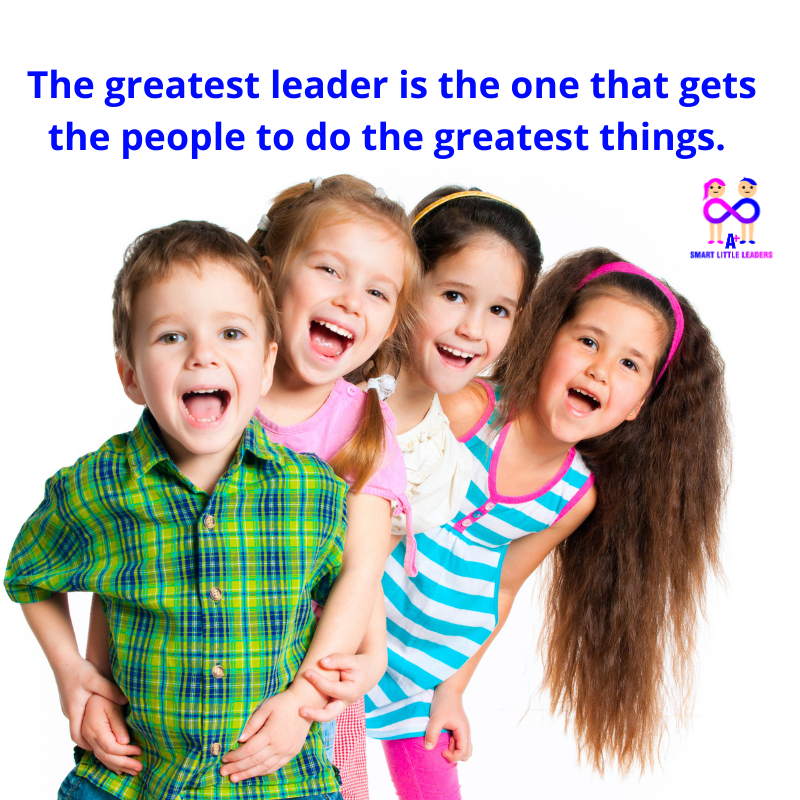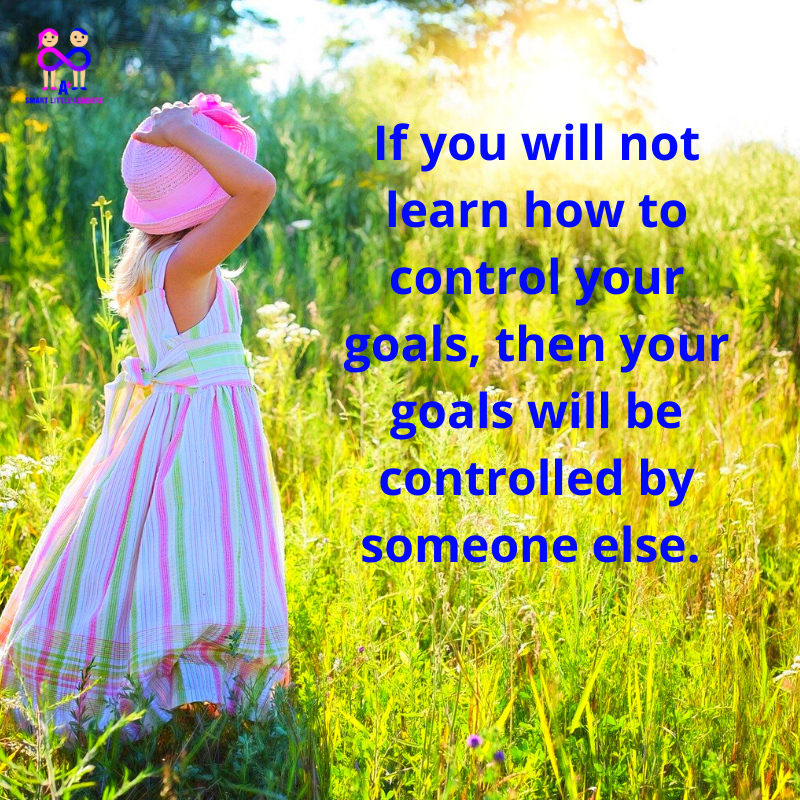First of all, what is the definition of a Leader?
A leader is a confident and courageous person with the ability to make difficult decisions while at the same time setting a good example for others to follow while taking responsibility for the final result.
They are individuals who set clear goals, detailed plans, and have a vision for success.
Usually, a child who is born with leadership skills will not seek attention from others. Other children will come to play with them because he/she will be the one who comes up with fun games and other creative ideas.
Children who are born leaders are very outgoing, want to know everything, constantly ask questions, and always want to be first in anything they do.
Each parent’s dream is to have children who are achievers, persistent, motivated, well-spoken, and outgoing.
If you want to know if your child is a leader or not, just observe how your child interacts with others, what types of games he/she likes to play.
If both you, the parent, and your child desires to become a leader, here are a few ways to accomplish that.
The most important for you is to understand that becoming a leader is a mental process that takes time, guidance, and patience.
A+ Smart Little Leaders program was specially designed for children who want to become leaders and develop their own leadership skills.
This course can aid your child in deciding if they should choose a leadership path in their future or not.
Regardless, having a set of leadership skills can be very useful, because it can make their future life less stressful and more successful.
If your child is a born leader, he/she will easily get attention from their peers, easily meet with children their own age, and quickly establish communication with their peers.
But what if your child is not that sociable but wants to become a leader?
What must he/she do? Is this even possible?
How can you help your child to develop leadership skills?
9 Ways You Can Help Your Child to Develop Leadership Skills
1. Show support & encouragement to your child. Have a positive attitude toward your child. Praise your child more than you scold him/her.
2. Use good humor in your communication with your child. Doing that will make it easier to go over negative obstacles in your child’s behavior.
3. Respect your child’s opinion. Right or wrong, your child has the right to have his/her opinion. If you think his/her opinion is wrong, you have to correct it softly using humor and by your own example. Remember to praise your child for speaking out, because it takes courage for your child to express their own opinion at an early age. It is good to know that the ability for your child to have his/her own opinion is a sign of a future leader.
4. Every day show love and kindness to your child. Be affectionate with kisses and hugs, and express how much you love him/her.
5. Invite your child to communicate with adults as well. For example, when you are visiting your friend or when you are at a store. Allow your child to ask questions and treat him/her equally during the conversation.
6. Support the hobby of your child. If your child likes sports, computer robotics, drawing, singing, acting, crafting take him/her to a YMCA or a Park District where you can find these classes. Take him/her to different talent contests, theaters, concerts. There your child can interact with like-minded children while learning new things and having fun. Take your child to the library. At the library, you can find many exciting activities that your child will enjoy.
7. Take your child to the leadership classes that teach such important skills such as public speaking.
8. Teach your child how to set goals and achieve them. Your child will learn to be responsible. Don’t use discouraging phrases such as: “you can’t do this, you will not be able to do this, it’s too hard for you, you are not smart enough, why do you need this, you don’t know how to do this.”
9. Develop an Initiative for your child.
Allow your child to plan and make a decision while wisely guiding them in the right direction. This way your child can be proud that he or she made this decision on their own.
As a mother or a father, you should initiate positive behavior in your child. When he/she starts the task, always encourage your child to complete it.
As a mother, I had questions myself: Are my son’s leaders or not?
To make things easier for you, I included in the link below is a simple Leadership Quiz for your child.
If your child has a strong desire to become a leader, has clear goals, determination, a sharp mind, and a plan in place, in spite of their temperament type, a child can become a leader. It may take more work for those who are phlegmatic and melancholics. Help them to work on persistence, determination, and self-discipline and sign up today for A+ Smart Little Leaders classes and win.
©2020 All right Reserved






